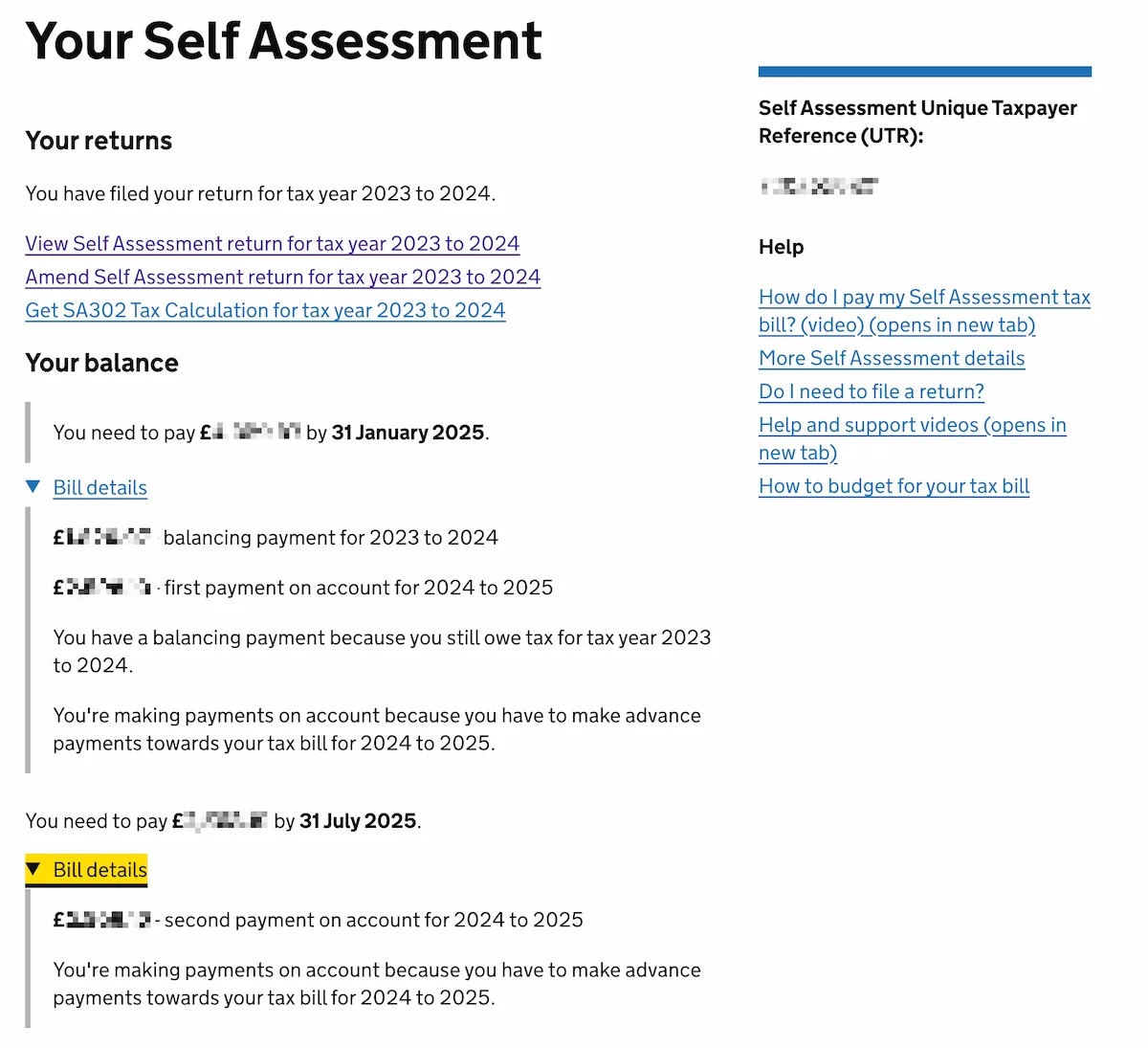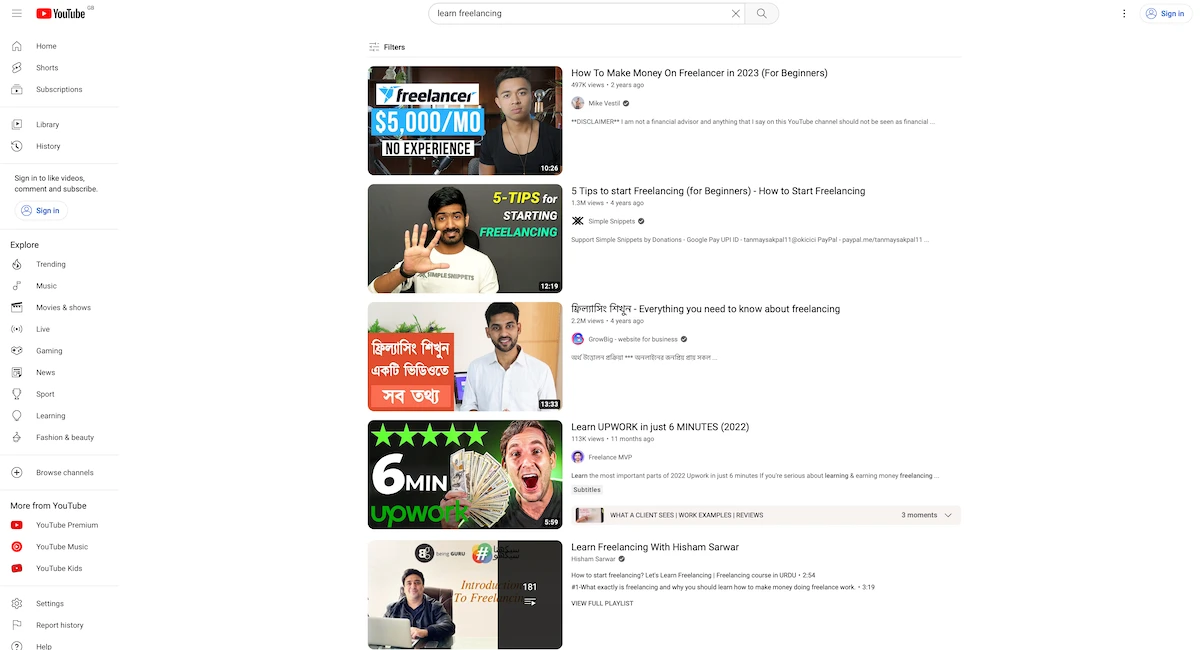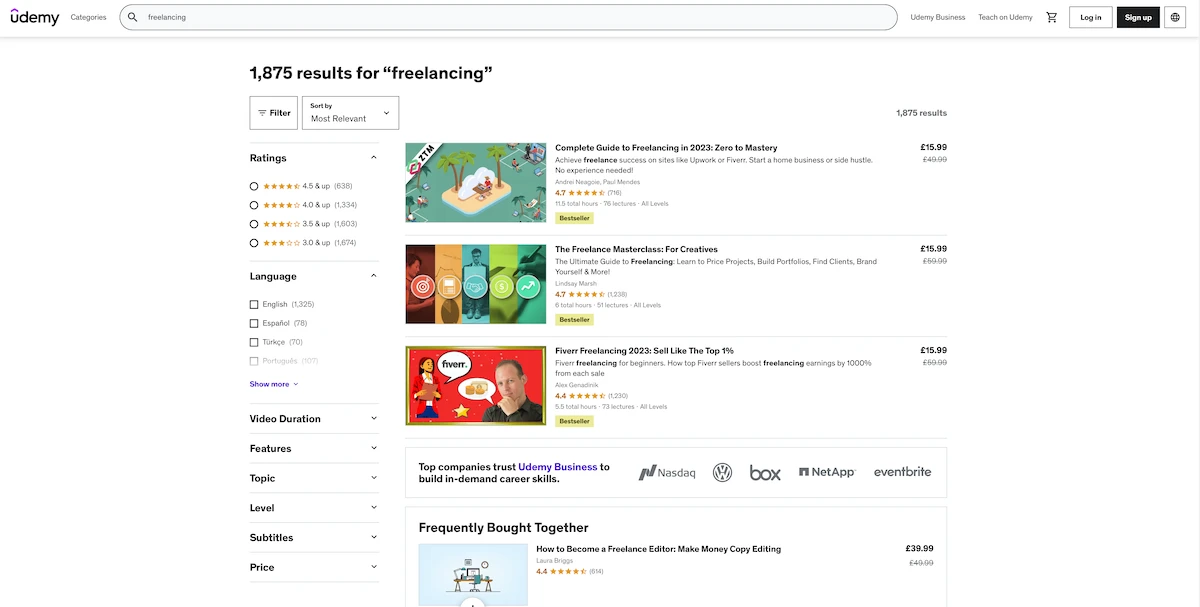Freelancing is an increasingly popular way of working and earning money, but it’s not without its downsides. If you’re considering freelance work, you need to understand the potential obstacles and disadvantages that come along with it before you take the plunge.
Below, I’ll go through the most important downsides to be aware of before you become a freelancer.
Limited Job Security
One of the biggest disadvantages of freelancing is the lack of job security. As a freelancer, your income will vary from project to project, and you’ll always be on the lookout for new work. This can make it difficult to plan ahead and prepare for unexpected financial setbacks or emergencies.
It can also make it mighty stressful. I’ve succumbed to the stress several times when in between freelance positions, and it’s not a fun time (but I think the benefits—more on them later—make this stress worth it).
Solution:
- Make sure you’re prepared for this lack of security before you start freelancing
- Devote enough time to finding new clients
- Save money in a separate bank account to tide you over through periods of little work
Lack Of Benefits
Many employers offer benefits like health insurance, retirement plans, and vacation time to full-time employees. These types of benefits are not usually available to freelancers, which means you may have to pay for them out of pocket if you want them at all.
Solution:
- Regularly put money aside to cover these kinds of expenses
- Set up a private pension and pay into it each month
- Consider taking out private insurance
No Structure
With traditional jobs, you typically have a set schedule and routine that you can count on. As a freelancer, your work and hours can be unpredictable. You might have to work late nights or weekends in order to meet client deadlines or squeeze in extra projects.
You need to be comfortable with this if you’re thinking of becoming a freelancer.
Solution:
- Think about whether you’ll be comfortable with this before you start
- Create your own work schedule and try your best to stick to it
- Adapt it over time to suit your productivity cycle
Note: I don’t think I personally have a clearly defined “productivity cycle” as such. But I find varying my tasks throughout the day where possible makes it far easier for me to get work done.
Self-Employment Taxes
When you’re employed by someone else, they usually handle the tax for you. As a freelancer, this responsibility falls on your shoulders. This means you need to keep records of your income and expenses and pay your taxes on time on your own.

Solution:
- Save money into a separate account each month that you’ll ONLY use to pay your taxes
- Keep track of your income and business expenses
- Hire an accountant if need be (and if you can afford it)
Tip: In the beginning, you can probably get by with accounting software. Depending on how complex your freelance business is, you might never need to hire a dedicated accountant.
Isolation
Working remotely can be isolating and lonely at times, particularly if most of your work involves communicating with clients via email, Slack, or other non face-to-face channel. Depending on the type of freelancing you do, you may also miss out on opportunities to build relationships and network with others in your field.
Solution:
- Reach out to people and attend industry networking events (there are lots of virtual ones too)
- Join communities of other freelancers (like social media groups or Slack channels)
- Make time for friends and family (these interactions are super valuable)
The Hidden Benefits Of Freelancing
Flexibility
The flexibility of freelance work is one of the main reasons people choose this path in the first place. With freelancing, you can often pick and choose which projects to take on and when to do them. Giving you more control over your daily schedule and lifestyle.
Freedom To Choose Projects
As a freelancer, you’ll also have more freedom when it comes to choosing projects that fit your interests and goals.
I’ve personally taken on freelance writing jobs in niches ranging across:
- SEO and digital marketing (a personal favorite)
- Construction
- Ecommerce
- Motorsport (another favorite)
- Furniture sales (random, I know)
- Health and fitness
So I’ve had quite the varied career so far!
As a freelancer, you won’t be stuck in a job that doesn’t align with your values or passions. You can choose exactly what type of work you want to do, allowing you to use your skills and talents in the way you deem best.
Increased Earning Potential
Freelancers can often charge more for their services than traditional employees. There are various reasons for this, from skill specialization to reduced overhead costs for the businesses hiring you making the higher prices worth it for them.
This means that you can potentially earn more than what you would make with a regular job. But you will need to build up your reputation, gain experience, and improve your skills before you can start charging sky-high rates.
Professional Development
As a freelancer, it’s up to you to stay on top of industry trends and develop new skills in order to remain competitive and attractive to potential clients. This ongoing professional development will not only help you stay at the top of your game but also give you an edge in the job market.
While it can be seen as a disadvantage that you need to take this responsibility, it does allow you freedom in the kind of skills you can pick up.
Personally, I love the constant learning. You can for sure get this in many traditional jobs, but freelancing gives you a lot of freedom here. And you don’t need to take courses—you can learn a lot of it for free on YouTube.

Is Freelancing Right For You?
To find out if the downsides are worth it, start by asking yourself the following questions:
Do You Have The Necessary Skills & Experience?
As a freelancer, you need to be able to market yourself effectively to land clients and keep them coming back. You must also be able to provide high quality services consistently.
If your current skill set isn’t up to par or if there are areas where you lack expertise, consider taking courses or getting additional training before jumping into freelance work full time.

Is Your Financial Situation Stable Enough?
One of the biggest drawbacks of freelancing is that your income can be unpredictable. Some months may bring in a windfall while others may leave your bank account rather dry.
Before making the switch, make sure that your finances are in order and that you have enough savings set aside for at least a few months of living expenses (perhaps even as many as 6-12 months).
Are You Comfortable With Working Alone?
You need to be able to stay focused and motivated, even when working independently. This means having the discipline to manage your own time and handle administrative tasks like invoicing and bookkeeping.
If you prefer being part of a team or find it hard to stay on task without external direction, freelancing may not be the right choice for you. But if you thrive working to your own schedules, it could be perfect!
Can You Handle Client Management?
Successful freelancers often need to wear multiple hats, from account manager to customer service representative. With the occasional difficult client thrown in there for good measure.
Being able to juggle different roles while providing top-notch service is key. So make sure that you’re ready for the challenge of taking on clients and managing their expectations.
Are You Willing To Invest In Yourself?
Freelancing requires an upfront investment of time and sometimes even money in order to get started. This could mean buying the necessary equipment, software, building a website, or taking courses to develop new skills.
If you’re not prepared to put in the effort required to succeed as a freelancer from the start, it’s going to be tough to remain competitive.
Do The Upsides Outweigh The Downsides?
While there are some hidden downsides to freelancing as a career, there are also many benefits to take advantage of.
Before you make the plunge, ask yourself the questions I discussed above to consider whether freelancing is the right choice for you. If you want more info on getting started on the right foot, check out my freelancing checklists for beginners.
Freelance Ready is reader-supported. That means some links on this website are affiliate links. If you sign up or make a purchase through these links, we may earn a commission.

